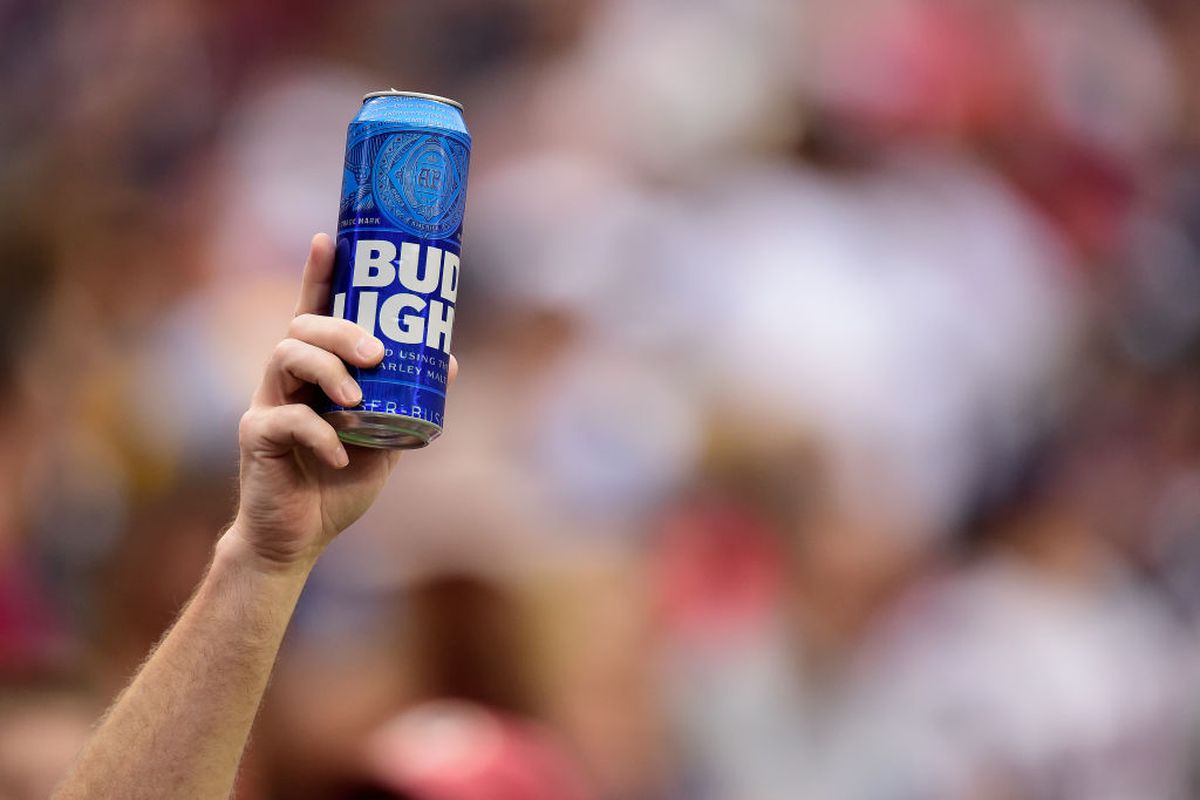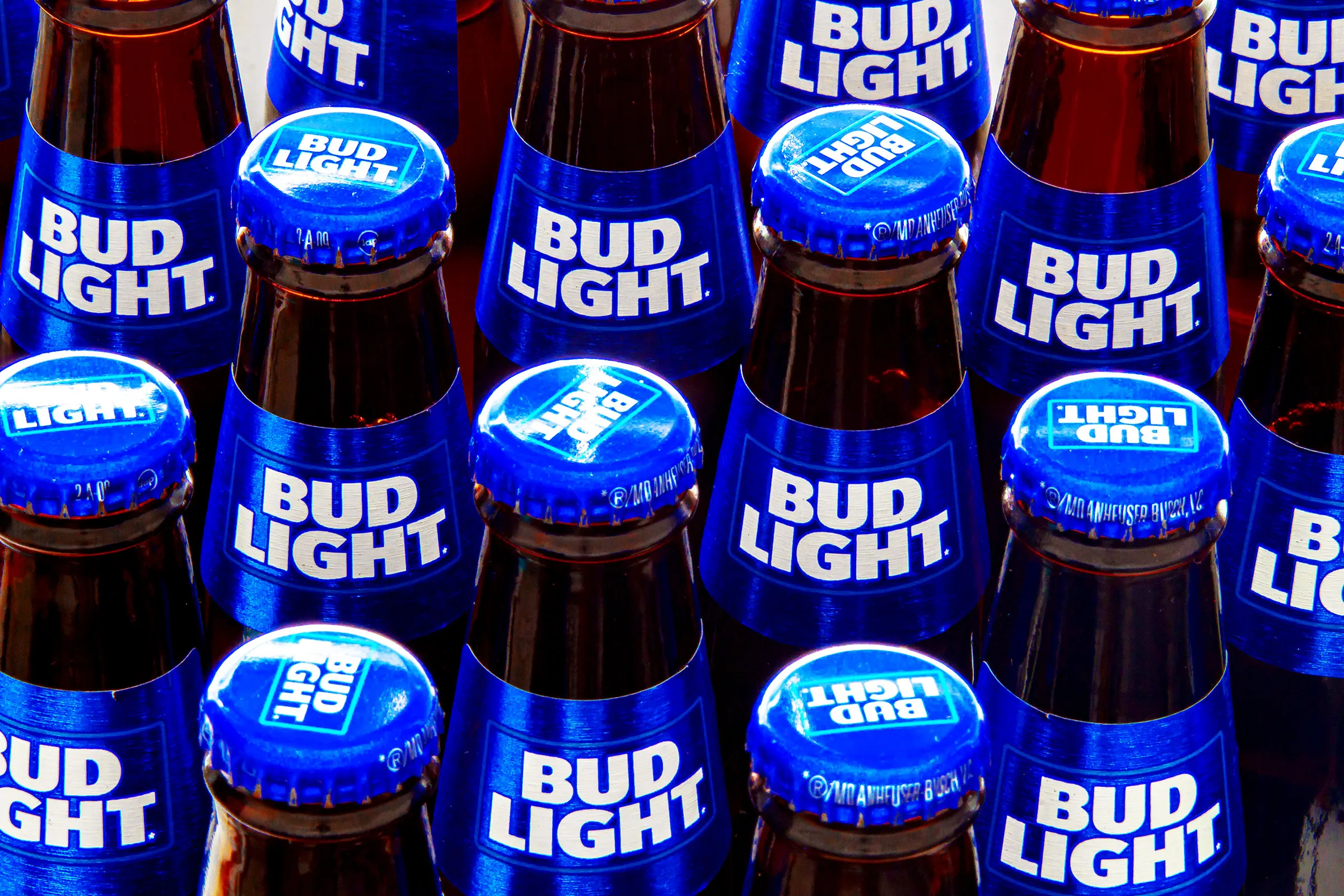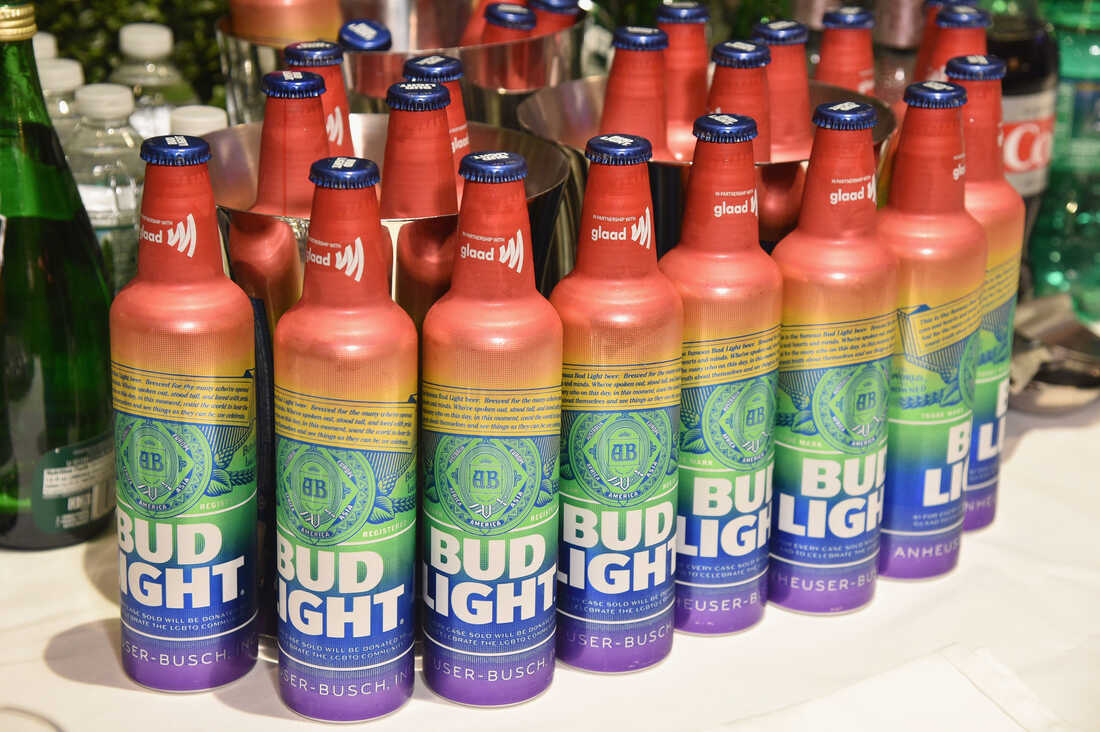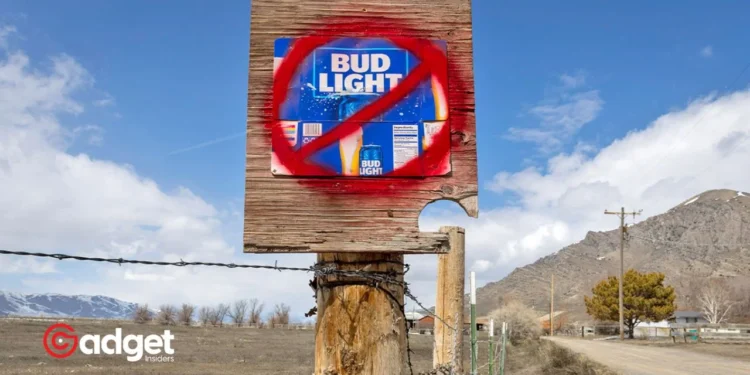Bud Light, a titan in the beer industry, found itself navigating through unexpectedly stormy waters following a partnership that aimed to broaden its inclusivity horizons. The collaboration with Dylan Mulvaney, a transgender social media influencer, was envisioned as a subtle nod to the LGBTQ+ community, yet it spiraled into one of the most talked-about controversies of the year.

Bud Light: The Catalyst of a Nationwide Boycott
Initially, the partnership was simple: Mulvaney would showcase Bud Light on her social platforms, even flaunting cans adorned with her likeness to celebrate her transformative journey. This minimalistic approach, devoid of any grandiose marketing schemes, unwittingly set the stage for a significant backlash.
Kid Rock, a figure synonymous with right-wing politics and a staunch supporter of former President Donald Trump, ignited the fuse by publicly destroying cases of Bud Light. This act, seemingly trivial at first glance, resonated with a considerable portion of the beer’s consumer base, leading to a boycott that saw the brand’s sales plummet by 26%.

A Missed Opportunity for Reconciliation
In the aftermath, Mulvaney critiqued Anheuser Busch InBev for its lack of support during the tumultuous times. Yet, it was her proposal, a beacon of potential unity, that stood out amidst the fallout.
At a South by Southwest panel, she unveiled a vision for a Bud Light commercial where humor bridged the divide, featuring a cowboy and a transgender individual sharing a moment of camaraderie over a beer. This idea, however, was met with silence from the company, a missed opportunity to challenge stereotypes and foster a message of inclusiveness.
Bud Light hasn’t fully rebounded as one-year mark of Dylan Mulvaney fiasco approaches: ‘Very stubborn boycott' https://t.co/XNEgvR6Tbw
— Fox News (@FoxNews) March 22, 2024
The Road to Recovery
As Bud Light grappled with its identity in the wake of the boycott, Anheuser Busch InBev CEO Michel Doukeris revealed the tangible impact on the company’s bottom line. The brand’s sales downturn significantly contributed to a 9.5% revenue decline, underscoring the severity of the situation.
In response, Bud Light has sought solace in returning to its roots, emphasizing partnerships and sponsorships that resonate with a broad audience, from sports enthusiasts to music lovers. Notable collaborations with the NFL, NBA, and even becoming UFC’s largest sponsor, highlight a strategic pivot designed to recapture the brand’s universal appeal.

A Lesson in Brand Resilience
The saga of Bud Light’s partnership, boycott, and tentative steps toward recovery encapsulates more than just a marketing misstep. It serves as a stark reminder of the delicate balance brands must navigate in today’s socio-political landscape. The episode underlines the importance of standing by one’s principles, the potential of humor to heal, and the unexplored avenues of creative storytelling in marketing.
As Bud Light endeavors to reclaim its throne in the beer market, the journey ahead is fraught with challenges and opportunities alike. The brand’s commitment to diversity and inclusivity will undoubtedly continue to be scrutinized, but it’s the lessons learned from this ordeal that will shape its path forward.
In a world where consumer values are increasingly influencing brand directions, Bud Light’s story is a testament to the evolving dynamics of brand-consumer relationships, highlighting the need for authenticity, courage, and, above all, a shared sense of humanity.










